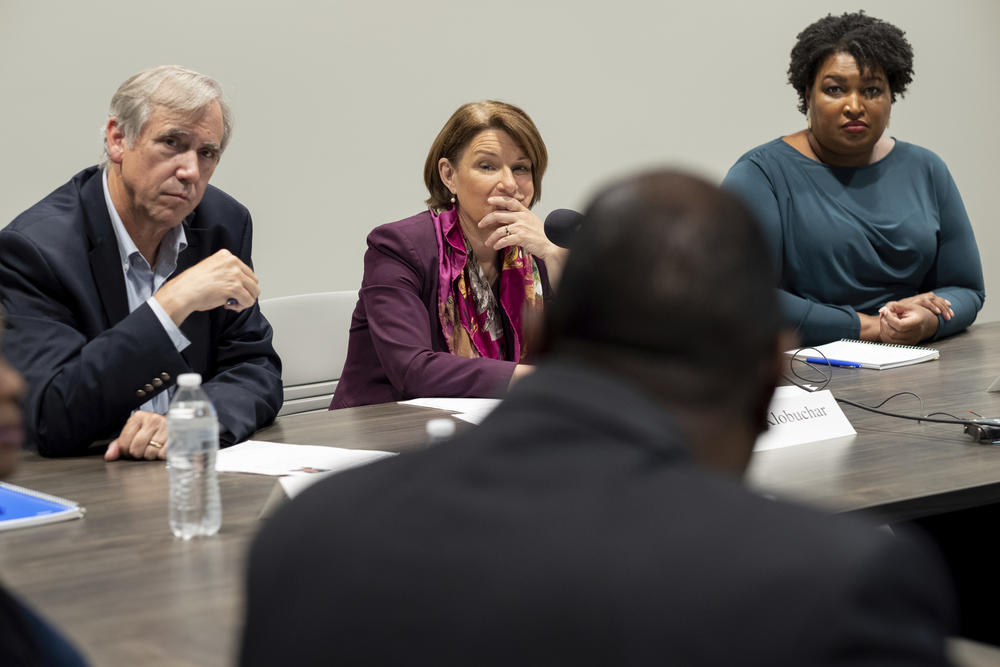
Caption
Sen. Jeff Merkley, left, D-Ore.; Sen. Amy Klobuchar, D-Minn., and former Georgia state Rep. Stacey Abrams, right, listen to people talk about their experiences in voting, in Smyrna, Ga., Sunday, July 18, 2021.
Credit: AP Photo/Ben Gray

